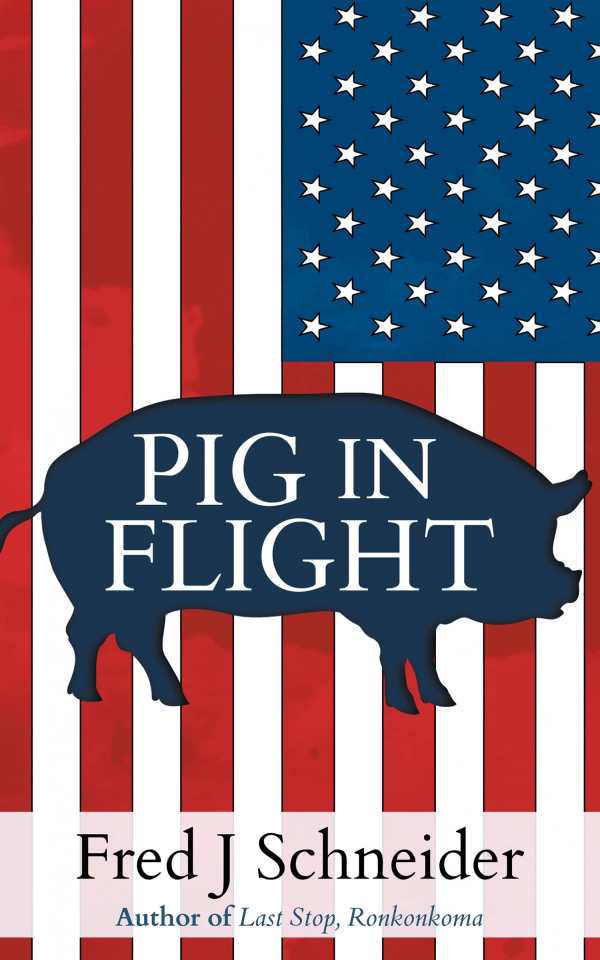Pig in Flight
Fred J. Schneider’s funny Pig in Flight is set in the revolutionary year of 1968. Amid anger over the Vietnam War and the approaching victory of Republican presidential candidate Richard Nixon, an unlikely pack of outsiders decide to nominate a pig to be commander in chief.
Corman looks like a million other misfits. With a red ‘fro, pale skin, and freckles, this kid from Columbus, Ohio, is actually a member of the FBI’s infamous COINTELPRO program. His job is to infiltrate a Yippie plan to nominate Pigasus, an actual pig, for president. While on the job, Corman links up with another Vietnam vet—the earnest Sal, who is dedicated to protecting Pigasus’s life at any cost.
Told from Corman’s perspective, the novel follows the comical plans of famous flower children like Abbie Hoffman and Jerry Rubin while simultaneously describing the machinations of the federal government and the Chicago Police Department. For these latter forces, Pigasus is not a joke but the absurd centerpiece of an assassination plot.
While not every line in the novel is funny, the entire story is riddled with comedy. The plot is farfetched, and with characters like Sal and Corman, it is hard not to fall in love with this far-out work. Schneider wins over his audience with his punchy, time-appropriate dialogue, with emphasis on the stoners and countercultural types who say the dumbest things in order to sound “cool.” There is some baby boomer fetishization here, and the Chicago cops are often depicted as slobbering beasts while Hoffman and the Yippies come off as harmless pranksters, but such romanticism does not derail the novel’s main thrust.
A love letter to the 1960s, Pig in Flight is a humorous look at a dark moment in American history and at the types of people who gravitated to the outrageous during a cultural civil war.
Reviewed by
Benjamin Welton
Disclosure: This article is not an endorsement, but a review. The publisher of this book provided free copies of the book to have their book reviewed by a professional reviewer. No fee was paid by the publisher for this review. Foreword Reviews only recommends books that we love. Foreword Magazine, Inc. is disclosing this in accordance with the Federal Trade Commission’s 16 CFR, Part 255.

